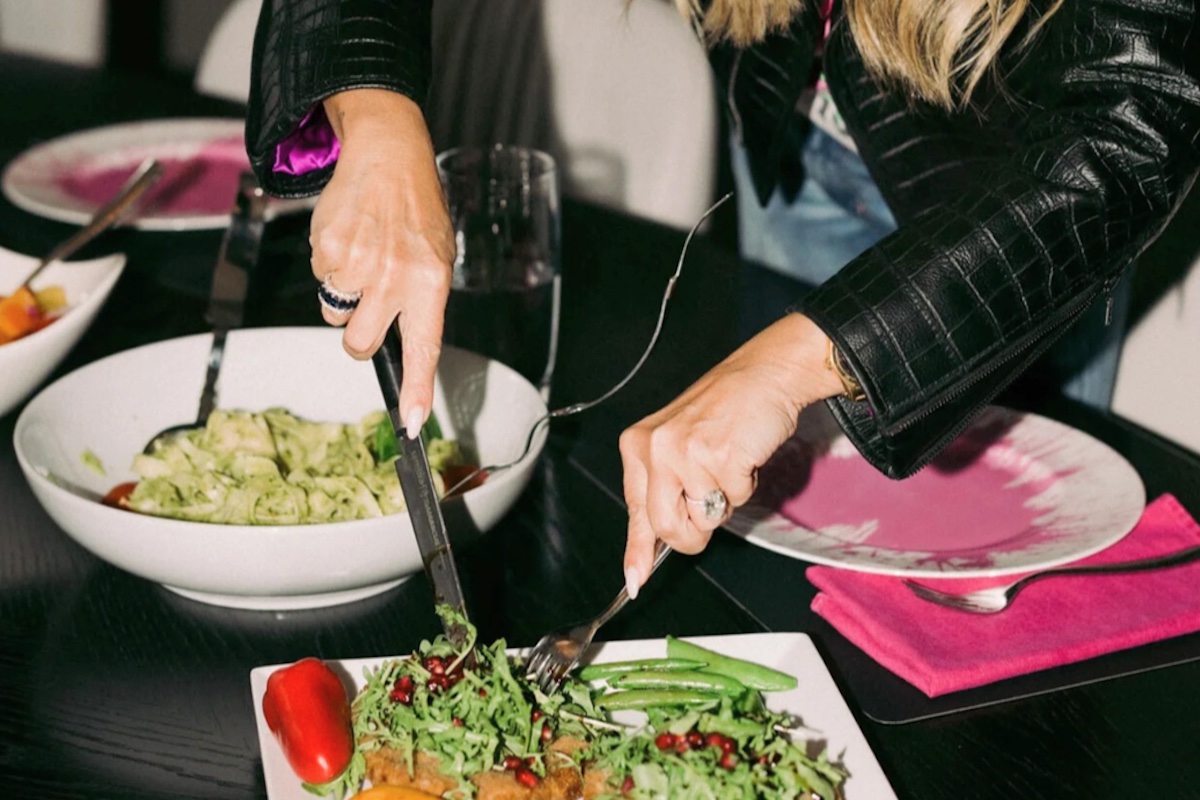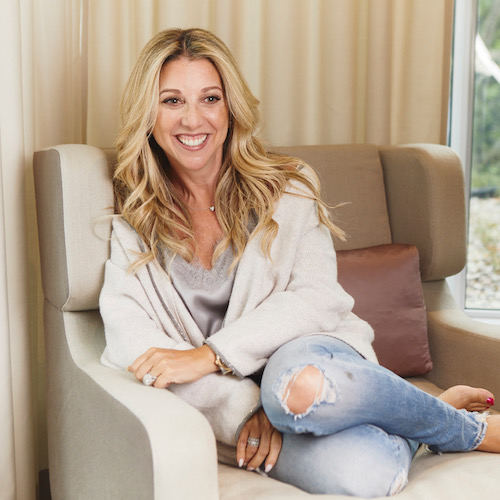
As a holistic nutritionist, I’ve done a lot of thinking about why it’s so important to walk around feeling like the best version of me. For too long, I was so buried under stress that I felt unwell most of the time. Equating the food on my plate exclusively to the number on the scale didn’t help, and neither did trying to make sense of the ever-changing health crazes.
It was only once I began prioritizing nourishing myself in mind, body, and spirit that I realized how powerful it is to live in a more holistic way. Food is the first magical ingredient in true well-being! In fact, being well-nourished is the foundation upon which we build a solid wellness routine.
Holistic living is not a diet or a 30-day challenge but a conscious lifestyle shift, and you may be surprised to know that the best place to start is not the gym. It’s in your very own kitchen. That’s where I began choosing, every day, to feed myself and my family the best possible fuel. And as a result, I began to feel more balanced, energetic, calm, and satisfied.
Food is the door to holistic wellness
When we talk about nourishment, food is the most obvious, tangible starting point. What we eat literally feeds the cells that make us who we are. That’s why choosing whole foods with real, minimally processed ingredients is so important (and delicious!).
When you eat whole foods, you know exactly what’s going into your body, and when you cook with nutritious ingredients, you know exactly what’s going into your meals. Home cooking gives you the freedom to control what’s on your plate. For me, there is nothing more delicious than grilled salmon and a side of crisp greens, but when at a restaurant, it can unknowingly arrive drowning in butter, salt, or MSG, and your ‘healthy choice’ is squandered. I’d prefer to enjoy unhealthy treats in a conscious way by choosing to share a creamy dessert or a plate of fries.
Nourishment is more than food
I’ve also learned that home-cooked meals can nourish our relationships. Sitting down to eat together is a routine that anchors families. Kids learn valuable skills through facetime communication — body language, negotiation, patience — and you get a pulse check on your loved ones. Are they stressed? Overworked? Celebrating something? Struggling quietly? It’s easier to be supportive (or give needed space) when you’re tuned in regularly, not just catching up on weekends.
In our house, I would always set the stage for connection. That means no devices at the table, applause for the chef, and a fun question-and-answer or guessing game to give everyone a chance to contribute.
Plus, cooking and eating together is a beautiful way to keep traditions alive. I love sharing recipes passed down through the ages and to invent our own weird family favorites. Food connects us to where we come from, and it creates memories for where we’re going.
Kick the cooking rut
For many people, shopping, planning, cooking, and cleaning is terribly stressful. It can feel like overwhelming, boring, repetitive work. Maybe you think it’s not your thing or you dread the inevitable, “Ewwww, what’s that?” from picky eaters.
But there are easy ways to break through the resistance:
- Get an easy-to-follow cookbook you like. May I suggest my own, Love What’s on Your Plate? Picking a cookbook with drool-worthy recipes can turn meal planning from a chore into a fun challenge.
- Grocery shop like it’s a mini field trip. Hit up local farmers’ markets, the pastry shop or butcher. Chat with the owners. Explore new ingredients. Let the task turn into a treasure hunt.
- Cook once, eat twice. Make double portions and freeze extras. The future-you will thank you when dinner is already done on a busy night!
- Make it social. Cue up your playlist and invite everyone to chop, stir, and dance alongside you. Preparing food doesn’t have to be a solo mission.
- Create special rituals around meals. Arrange flowers in a vase or light a candle at the dinner table, even if it’s just Taco Tuesday (we call that ‘Fiesta Night’).
The fact is, the more you connect positive energy to the kitchen, the less it feels like drudgery.
What happens when you shift?
You’ll start to feel the difference in so many ways.
You’ll have more energy, and it will be real, grounded, vibrant energy, not just caffeine-fueled buzzes. You’ll find more joy in small things: the crackle of onions sautéing, the light in your child’s eyes when they tell you about their day, the surging pride you feel serving a dish you made from scratch.
Your relationships will deepen. It’s hard to describe, but it’s almost like putting more coins into your emotional bank account with every shared meal and genuine conversation.
Most importantly, you’ll strengthen your sense of belonging — to your family, to your heritage, and to your own body. Because nourishing yourself is an act of love. It’s a quiet but radical way to say, I deserve to feel good. We deserve to feel good together.
So here’s your invitation: Start in your kitchen
Don’t hold yourself to rigid rules or shoot for perfection. Just step into your kitchen and offer yourself a little more intention, joy, and curiosity. Because vitamins and minerals are just the beginning. Nourishment is really about enjoying the moments of your life so you can feel amazing, from the inside out.
Media Contact: Chris Reed, Reed Books Publicity: chris@reedbookspublicity.ca, 416-779-7333
We’d love to hear from you! Please send us your suggestions for future articles. And if you’re a writer, please see our writer’s submissions page for details.

